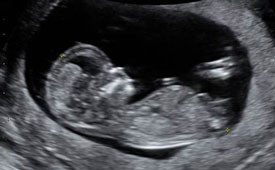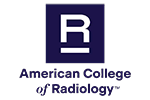How big is the risk from medical imaging to future generations?
We know that very high radiation doses can damage or kill eggs or sperm. However, diagnostic radiology (e.g., x-ray or CT) uses only low radiation doses. These doses are much lower than those that could produce destructive effects to eggs or sperm. There have been many investigations regarding the possible genetic effects on offspring, after the parent’s exposure to low levels of radiation. None of these investigations have identified any negative effects. Therefore, diagnostic radiation that involves exposing reproductive organs to low levels of radiation is considered safe regarding genetic effects.

Radiation exposure to sperm or eggs is typically negligible if the testicles or ovaries are not directly exposed. Even if reproductive cells are directly exposed, the dose from a diagnostic exam poses essentially no risk. No studies have shown that low-level radiation exposure to eggs or sperm causes birth defects or miscarriage. Therefore, the risk is exceedingly small (essentially zero). In other words, the risk is less than the three percent overall chance that all fetuses have of birth defects from factors unrelated to radiation.
Interestingly, many cancer patients who experienced temporary infertility after high doses of radiation treatment with chemotherapy, have reported bearing healthy children, once recovered. In other words, for those that maintain or regain fertility, no proven lasting effects from radiation are associated with their offspring.
This page was reviewed on June 07, 2024


